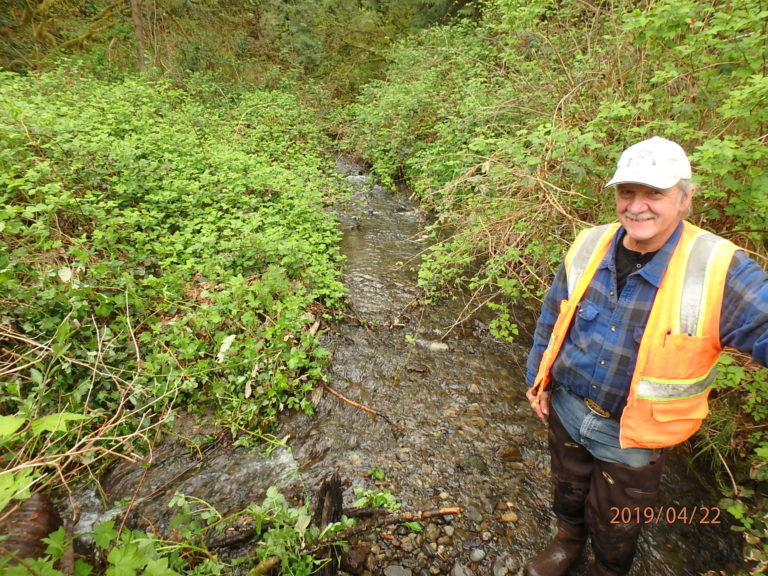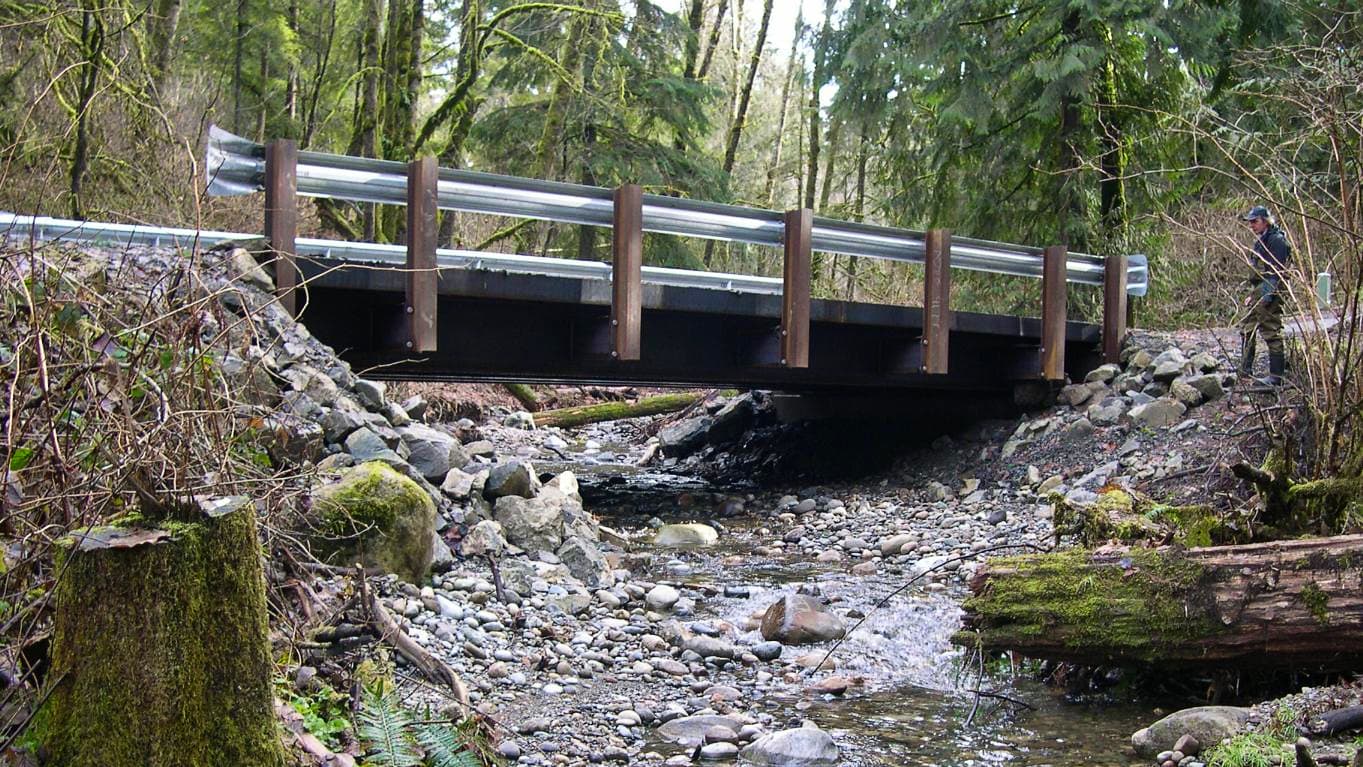

The project area included a section Weiss Creek, a tributary to the Snoqualmie River in western Washington State, where an undersized, failing culvert blocked coho, cutthroat, and steelhead from accessing vital stream and wetland habitat. By interrupting habitat connectivity, even a single barrier can have a disproportionately large impact on the abundance and resiliency of wild fish populations.
The Family Forest Fish Passage Program (FFFPP) assists private forestland owners in removing culverts and other stream crossing structures that prevent ESA listed salmonids from migrating upstream. Through the management of DNR’s Washington State Recreation and Conservation Office some 376 landowners have taken advantage of the program to remove 433 barriers since 2003.
Wild Fish Conservancy (WFC) staff replaced an undersized partial-barrier culvert with a 35-foot long by 16-foot wide modular steel bridge. Minor in-channel work was performed to provide a consistent gradient through the project reach, and large woody debris (LWD) was added to increase in-stream habitat complexity. Disturbed areas were replanted with native trees and shrubs.
Location | Start Date |
|---|---|
Weiss Creek, a tributary to the Snoqualmie River, King County, western Washington State | 04/01/2007 |
Project Type | Completion Date |
|---|---|
Fish Passage | 01/30/2009 |
The goal of this project was to improve access to both upstream and downstream habitat for salmonids to increase fish populations in this watershed. This was accomplished by replacing an existing fish passage barrier with a new structure that provided unimpeded passage to both upstream and downstream habitat.
Primary Habitats Impacted By Project: | Managing Agency/ Organization: |
|---|---|
Riparian Stream Channels | Wild Fish Conservancy |
Project Contact: | Budget or Project Cost: |
|---|---|
Jamie Glasgow | $109,913.28 |
Funding Sources: | Partners: |
|---|---|
Family Forest Fish Passage Grants | Landowner Steven Carlson |
Join our mailing list to recieve important updates on our work, the latest wild fish news, & opportunities to take action to support wild fish.
This site is protected by reCAPTCHA and the Google Privacy Policy and Terms of Service apply.
Wild Fish Conservancy is recognized as a 501(c)3 non-profit by the IRS